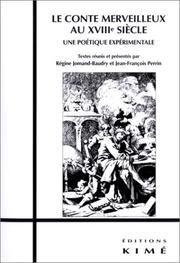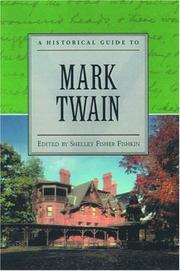| Listing 1 - 7 of 7 |
Sort by
|
Book
ISBN: 9548712156 9789548712156 Year: 2002 Publisher: Sofia Boyan penev
Abstract | Keywords | Export | Availability | Bookmark
 Loading...
Loading...Choose an application
- Reference Manager
- EndNote
- RefWorks (Direct export to RefWorks)
Mythology --- Folklore --- Myth --- Congresses --- Mythology - Congresses. --- Folklore - Congresses. --- Conte --- Mythe --- Littérature --- Légendes
Film
Year: 2002 Publisher: [S.l.]: Arte vidéo,
Abstract | Keywords | Export | Availability | Bookmark
 Loading...
Loading...Choose an application
- Reference Manager
- EndNote
- RefWorks (Direct export to RefWorks)
-Kaïro :Un jeune informaticien se suicide. Ses collègues découvrent alors une disquette qui modifie le comportement de ceux qui l'utilisent...Un thème proche de celui du "Ring" de Hideo Nakata, un thriller apocalyptique au réalisme terrifiant, un récit labyrinthique qui glace le sang. Kiyoshi Kurosawa se fait enfin un prénom en Europe après seize ans de carrière et reprend ici la thématique constante de son oeuvre, la remise en question des valeurs des personnages par un événement particulier.-Charisma:Un flic fatigué part se ressourcer à la campagne et rencontre un arbre maléfique responsable de la mort de la forêt. Il enquête sur ce mystère et ses valeurs s'en trouvent bouleversées.Entre thriller écologique et conte, une mise en scène inspirée, fluide, et un grand sens du cadrage et des images.
Image de la ville --- Informatique --- Mort --- Années 1990 --- Années 2000 --- Thriller --- Fantastique --- Ecologie --- Conte --- Tokyo --- Japon

ISBN: 2841742725 9782841742721 Year: 2002 Volume: *61 Publisher: Paris : Kimé,
Abstract | Keywords | Export | Availability | Bookmark
 Loading...
Loading...Choose an application
- Reference Manager
- EndNote
- RefWorks (Direct export to RefWorks)
Fantasy fiction, French --- Fairy tales --- French literature --- Marvelous, The, in literature --- Roman fantastique français --- Contes de fées --- Littérature française --- Merveilleux dans la littérature --- History and criticism --- Congresses. --- Histoire et critique --- Congrès --- French poetry --- Roman fantastique français --- Contes de fées --- Littérature française --- Merveilleux dans la littérature --- Congrès --- Fairytales --- Children's stories --- Tales --- Magic realism (Literature) --- Conferences - Meetings --- French poetry - 18th century - History and criticism - Congresses --- French literature - 18th century - History and criticism - Congresses --- Marvelous, The, in literature - Congresses --- Fairy tales - France - History and criticism - Congresses --- Littérature --- Contes français --- Contes --- Poésie française --- Littérature française. --- Conte. --- Libertinage. --- Éthique. --- Symbole. --- Conte de fée. --- Merveilleux. --- conte français --- conte français. --- History --- Congrès. --- Histoire --- merveilleux --- 1700-1799 --- 18e siècle

ISBN: 0195132920 9780195132922 0195132939 9780195132939 0195302281 9780195302288 9786610530748 6610530742 128053074X 0199729069 9780199729067 0190285257 Year: 2002 Publisher: Oxford Oxford university press
Abstract | Keywords | Export | Availability | Bookmark
 Loading...
Loading...Choose an application
- Reference Manager
- EndNote
- RefWorks (Direct export to RefWorks)
When and why do groups target each other for extermination? How do seemingly normal people become participants in genocide? Why do some individuals come to the rescue of members of targeted groups, while others just passively observe their victimization? And how do perpetrators and bystanders later come to terms with the choices that they made? These questions have long vexed scholars and laypeople alike, and they have not decreased in urgency as we enter the twenty-first century. In this book--the first collection of essays representing social psychological perspectives on genocide and the Holocaust-- prominent social psychologists use the principles derived from contemporary research in their field to try to shed light on the behavior of the perpetrators of genocide. The primary focus of this volume is on the Holocaust, but the conclusions reached have relevance for attempts to understand any episode of mass killing. Among the topics covered are how crises and dificult life conditions might set the stage for violent intergroup conflict; why some groups are more likely than others to be selected as scapegoats; how certain cultural values and beliefs could facilitate the initiation of genocide; the roles of conformity and obedience to authority in shaping behavior; how engaging in violent behavior makes it easier to for one to aggress again; the evidence for a "genocide-prone" personality; and how perpetrators deceive themselves about what they have done. The book does not culminate in a grand theory of intergroup violence; instead, it seeks to provide the reader with new ways of making sense of the horrors of genocide. In other words, the goal of all of the contributors is to provide us with at least some of the knowledge that we will need to anticipate and prevent future such tragic episodes.
Literature and history --- Literature and society --- History --- Twain, Mark, --- Twain, Mark --- Tvėn, Mark --- Tuėĭn, Mark --- Tuwayn, Mārk --- Twayn, Mārk --- Tʻu-wen, Ma-kʻo --- Tven, M. --- Touen, Makū --- Twain, Marek --- Make Tuwen --- Tuwen, Make --- Make Teviin --- Твен, Марк --- Touain, Mark --- טבןַ, מרק, --- טוויין, מארק, --- טוויין, מרק, --- טווין, מארק, --- טווין, מרק, --- טווען, מארק, --- טוין, מרק, --- טװען, מארק, --- טװײן, מארק, --- 馬克吐温, --- Tuvāyn, Mārk --- Tvāyn, Mārk --- تواين، مارک --- Clemens, Samuel Langhorne --- Snodgrass, Quintus Curtius --- Conte, Louis de --- Knowledge --- History. --- Political and social views.
Book
ISBN: 9791036502064 276062370X 9782760623705 2760629090 Year: 2002 Publisher: Presses de l’Université de Montréal
Abstract | Keywords | Export | Availability | Bookmark
 Loading...
Loading...Choose an application
- Reference Manager
- EndNote
- RefWorks (Direct export to RefWorks)
En 1886, William-Little Hughes traduit le célèbre roman de Mark Twain, Adventures of Huckleberry Finn. Cette première traduction française, à travers les métamorphoses qu'elle fait subir au personnage de Jim et à sa parole, le Black English, constitue un renversement majeur de l'entreprise initiale de Twain. En effet, dans ce texte aux relents de colonialisme, Jim est confiné à un rôle de subalterne idiot, et Huck, à celui de maître blanc paternaliste et autoritaire. Toute traduction, quelle que soit sa visée, crée inévitablement des différences ; telle est la nature intrinsèque de ce processus. À travers l'étude de sept traductions françaises du roman, Judith Lavoie montre que les déplacements opérés par les traducteurs ne sont ni le fruit du hasard, ni irréfléchis, mais peuvent être associés à un réseau organisé de choix esthétique et idéologique. Qu'il s'agisse de la version de Hughes, se situant aux antipodes du roman américain, ou de celle de Suzanne Nétillard (1948), qui réactive le message contestataire de l'original, toutes les traductions sont fondées sur un véritable projet et jettent un éclairage unique sur une œuvre fascinante.
Black English --- Translating into French. --- Twain, Mark, --- Translations into French --- History and criticism. --- Twain, Mark --- Tvėn, Mark --- Tuėĭn, Mark --- Tuwayn, Mārk --- Twayn, Mārk --- Tʻu-wen, Ma-kʻo --- Tven, M. --- Touen, Makū --- Twain, Marek --- Make Tuwen --- Tuwen, Make --- Make Teviin --- Твен, Марк --- Touain, Mark --- טבןַ, מרק, --- טוויין, מארק, --- טוויין, מרק, --- טווין, מארק, --- טווין, מרק, --- טווען, מארק, --- טוין, מרק, --- טװען, מארק, --- טװײן, מארק, --- 馬克吐温, --- Tuvāyn, Mārk --- Tvāyn, Mārk --- تواين، مارک --- Clemens, Samuel Langhorne --- Snodgrass, Quintus Curtius --- Conte, Louis de --- Jews - Quebec - Montreal - Intellectual life. --- Jews - Quebec - Montreal - History. --- traduction --- littérature américaine --- Noirs américains --- black English --- Jews

ISBN: 0817311602 0817313508 9780817313500 9780817311605 Year: 2002 Publisher: Tuscaloosa University of Alabama Press
Abstract | Keywords | Export | Availability | Bookmark
 Loading...
Loading...Choose an application
- Reference Manager
- EndNote
- RefWorks (Direct export to RefWorks)
This illuminating study reevaluates an often overlooked aspect of Mark Twain's writing-his travel narratives-and demonstrates their centrality to his identity and thinking. Travel books, Jeffrey Melton asserts in this study, are vital to Mark Twain's identity as a writer and to his cultural influence, and not just, as many critics have argued, preliminary sketches or failed attempts at fiction. Furthermore, the identity that Twain establishes for himself in these books as the arch ""tourist"" provides the most compelling perspective from which to view his entire body of work. Melton begins by
Americans --- Popular culture --- Tourism --- Travel writing --- Travelers' writings, American --- Voyages and travels --- History --- History and criticism. --- Twain, Mark, --- Journeys --- Travel books --- Travels --- Trips --- Holiday industry --- Operators, Tour (Industry) --- Tour operators (Industry) --- Tourism industry --- Tourism operators (Industry) --- Tourist industry --- Tourist trade --- Tourist traffic --- Travel industry --- Visitor industry --- Yankees --- Economic aspects --- Tvėn, Mark, --- Tuėĭn, Mark, --- Tuwayn, Mārk, --- Twayn, Mārk, --- Tʻu-wen, Ma-kʻo, --- Tven, M. --- Touen, Makū, --- Twain, Marek, --- Make Tuwen, --- Tuwen, Make, --- Make Teviin, --- Твен, Марк, --- Touain, Mark, --- טבןַ, מרק, --- טוויין, מארק, --- טוויין, מרק, --- טווין, מארק, --- טווין, מרק, --- טווען, מארק, --- טוין, מרק, --- טװען, מארק, --- טװײן, מארק, --- 馬克吐温, --- Geography --- Adventure and adventurers --- Travel --- Travelers --- Service industries --- National tourism organizations --- Ethnology --- Clemens, Samuel Langhorne, --- Snodgrass, Quintus Curtius, --- Conte, Louis de, --- Tuvāyn, Mārk, --- تواين، مارک --- Tvāyn, Mārk, --- Twain, Mark --- Tvėn, Mark --- Tuėĭn, Mark --- Tuwayn, Mārk --- Twayn, Mārk --- Tʻu-wen, Ma-kʻo --- Touen, Makū --- Twain, Marek --- Make Tuwen --- Tuwen, Make --- Make Teviin --- Твен, Марк --- Touain, Mark --- Tuvāyn, Mārk --- Tvāyn, Mārk --- Clemens, Samuel Langhorne --- Snodgrass, Quintus Curtius --- Conte, Louis de

ISBN: 276062370X 9791036502064 2760617998 2760629090 Year: 2002 Volume: 37/3 Publisher: Montréal Presses de l'Université de Montréal
Abstract | Keywords | Export | Availability | Bookmark
 Loading...
Loading...Choose an application
- Reference Manager
- EndNote
- RefWorks (Direct export to RefWorks)
Jews --- Intellectual life. --- History. --- Black English (Dialecte) --- Anglais (Langue) --- Noirs américains dans la littérature. --- Black English --- English language --- African Americans in literature. --- Traduction en français. --- Translating into French. --- Twain, Mark, --- Translations into French --- History and criticism. --- Afro-Americans in literature --- Negroes in literature --- African American English --- American black dialect --- Ebonics --- Negro-English dialects --- Tvėn, Mark, --- Tuėĭn, Mark, --- Tuwayn, Mārk, --- Twayn, Mārk, --- Tʻu-wen, Ma-kʻo, --- Tven, M. --- Touen, Makū, --- Twain, Marek, --- Make Tuwen, --- Tuwen, Make, --- Make Teviin, --- Твен, Марк, --- Touain, Mark, --- טבןַ, מרק, --- טוויין, מארק, --- טוויין, מרק, --- טווין, מארק, --- טווין, מרק, --- טווען, מארק, --- טוין, מרק, --- טװען, מארק, --- טװײן, מארק, --- 馬克吐温, --- African Americans --- Languages --- Clemens, Samuel Langhorne, --- Snodgrass, Quintus Curtius, --- Conte, Louis de, --- Traductions françaises --- Histoire et critique. --- Personnages --- Noirs américains. --- Characters --- African Americans. --- Twain, Mark --- Criticism and interpretation --- African Americans in literature
| Listing 1 - 7 of 7 |
Sort by
|

 Search
Search Feedback
Feedback About UniCat
About UniCat  Help
Help News
News